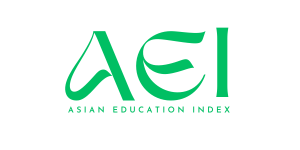The Role Of The Concept Of Innovative Development In The Education Of The Third Renaissance
Keywords:
Innovation, activity, science, stateAbstract
The article scientifically analyzes the role of the concept of innovative development in the education of youth of the third Renaissance. The national innovation system serves as the basis for the development of the economy between science, industry and society, and the needs of innovative development determine and stimulate the development of scientific activity
References
Mirziyoyev Sh.M. We will resolutely continue our path of national development and take it to a new level. 1 volume. -Tashkent: NMIU Uzbekistan, 2017.
Speech by Shavkat Mirziyoyev on December 30, 2016 at a meeting with leading scientists of the country. - People's speech, December 30, 2016
Balabanov I.N. Innovation management. - Peter, 2001.
Annotated dictionary of the Uzbek language. 2-t. - Tashkent: State Scientific Publishing House "National Encyclopedia of Uzbekistan". 2006 year
National encyclopedia of Uzbekistan. Zebuniso-Konigil / 4-volume. Members of the general editorial board: M. Aminov and others. - Tashkent: State Scientific Publishing House "National Encyclopedia of Uzbekistan", 2002.
Schumpeter J. The theory of economic development. - Moscow: Economics, 1982.
J. Hasanboev, Kh.A. Turakulov, I. Sh. Alkarov, N.O. Usmanov. Pedagogy. - Tashkent: "Noshir", 2011.
Textbook "Psychology of gifted children". Buxoro - 2010.
Goziev E. and Usmonova S. Psychology of intellect. - Tashkent, 2009.
Downloads
Published
Issue
Section
License

This work is licensed under a Creative Commons Attribution-NonCommercial 4.0 International License.
User Rights
Under the Creative Commons Attribution-NonCommercial 4.0 International (CC-BY-NC), the author (s) and users are free to share (copy, distribute and transmit the contribution).
Rights of Authors
Authors retain the following rights:
1. Copyright and other proprietary rights relating to the article, such as patent rights,
2. the right to use the substance of the article in future works, including lectures and books,
3. the right to reproduce the article for own purposes, provided the copies are not offered for sale,
4. the right to self-archive the article.













